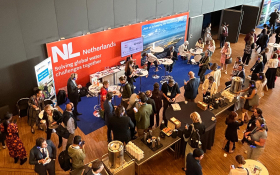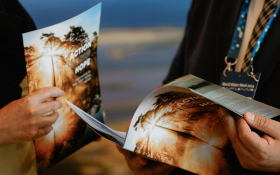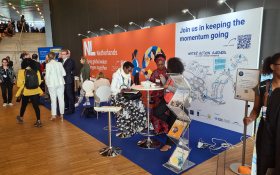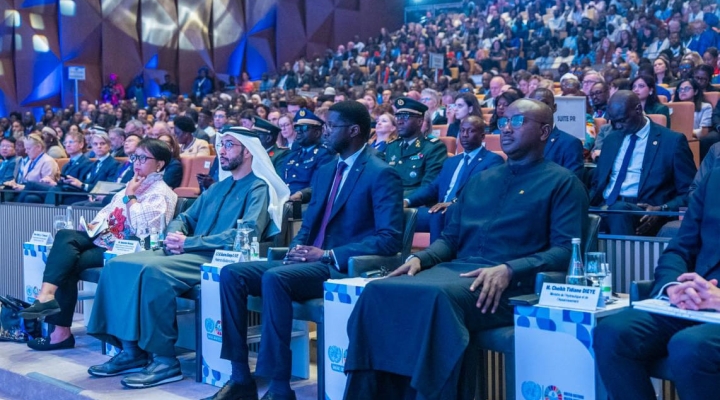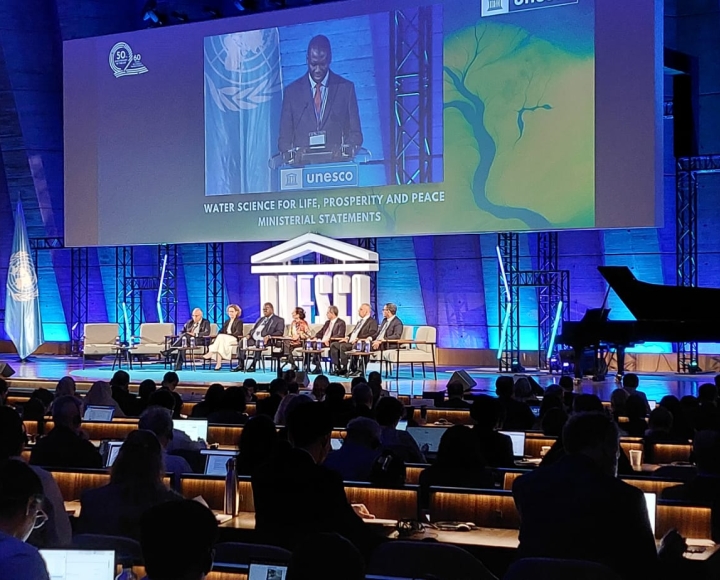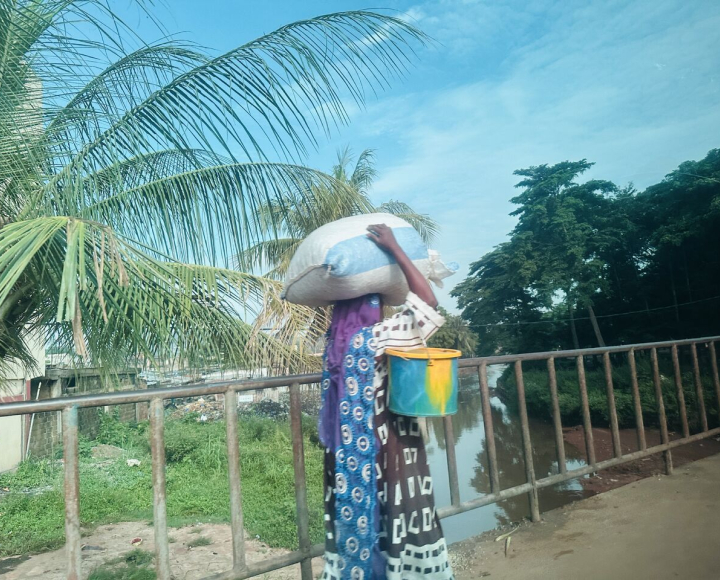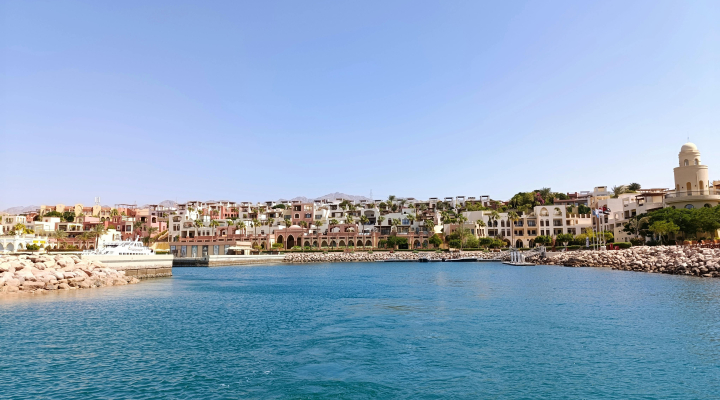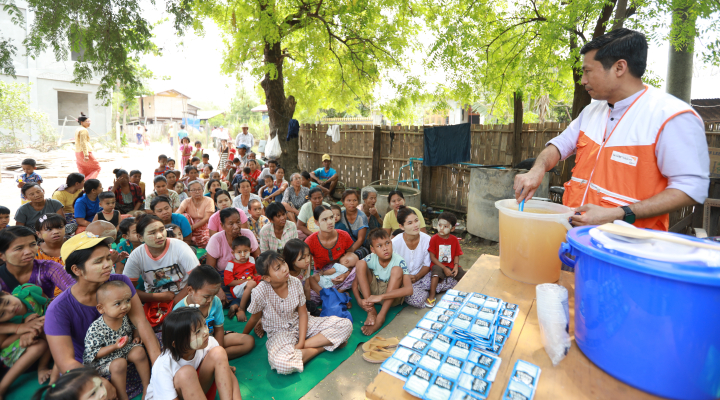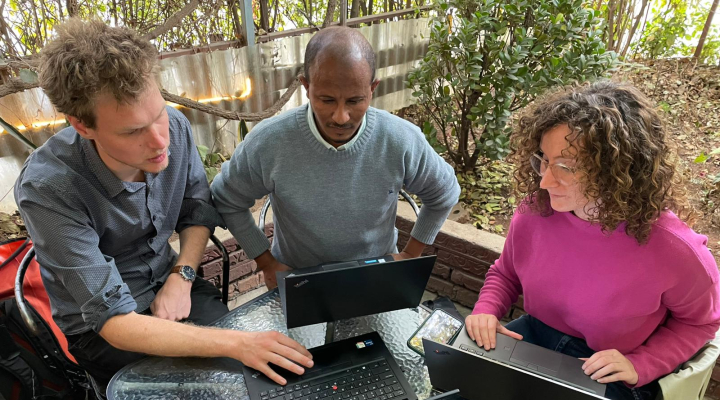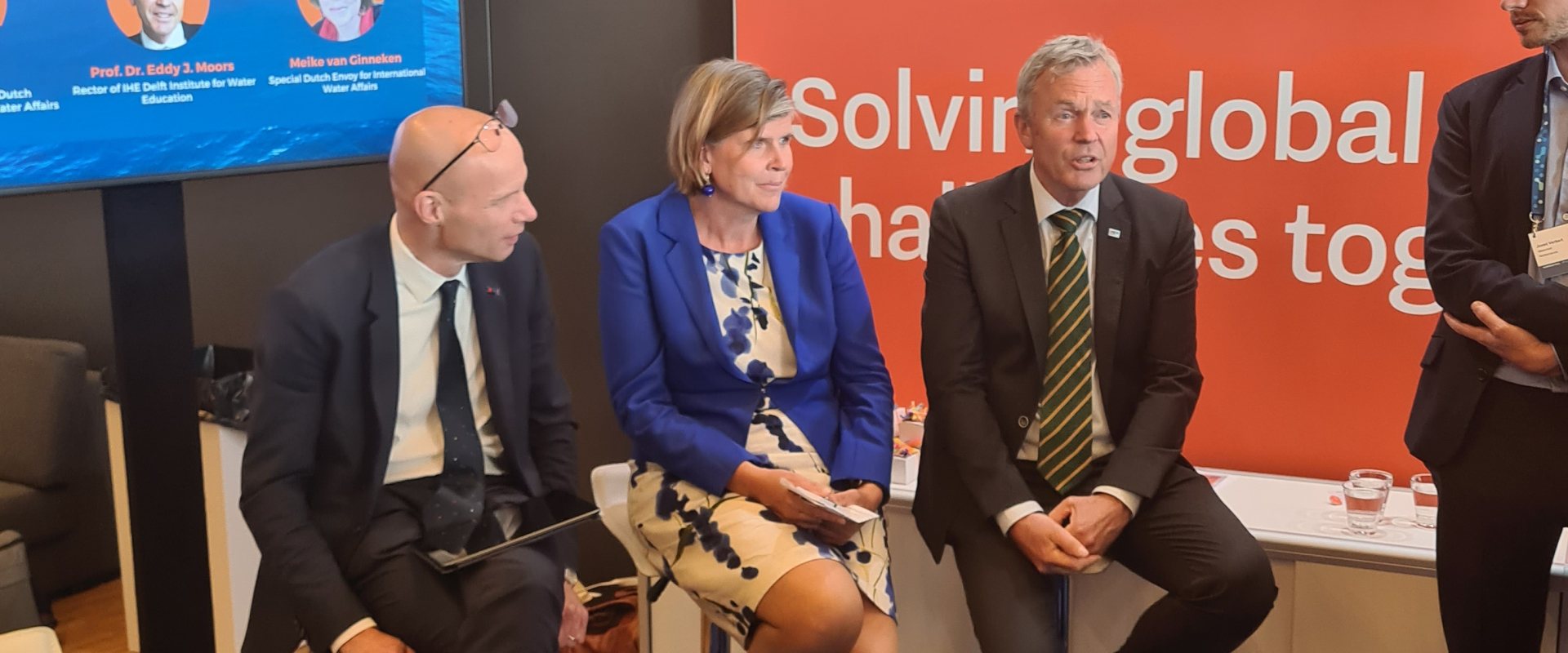
Dutch commitments to the UN Water Action Agenda presented at Stockholm World Water Week
The number of actions on the UN-Water Action Agenda that was launched in New York last March, has risen to 832. Of these, 81 actions involve Dutch organisations. At the Stockholm World Water Week, several of the Dutch organisations involved presented an update on their support and contribution to keep the momentum going. This article looks at some interesting updates from Stockholm, showing that the Action Agenda is very much alive.
This year’s edition of the Stockholm World Water Week gave the global water community the opportunity to reflect on the UN Water Conference held in March in New York. Apart from the institutional strengthening of the UN on water, the focus was very much on the joint Water Action Agenda and the progress that has been made over the last 150 days. Many partners involved in the action agenda, showcased what happened since New York. Several sessions included Dutch water experts explaining their efforts to keep the action agenda alive. The main takeaways of five of them are briefly described here.
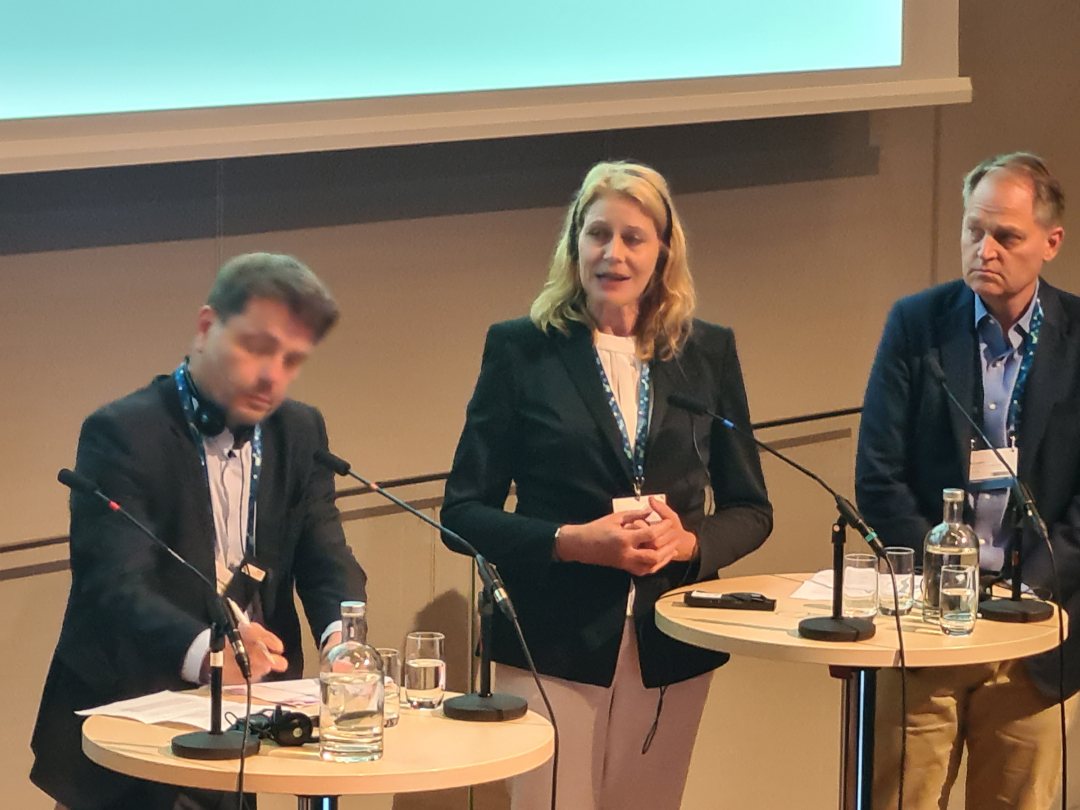

More support for river basin management
Representatives of the Blue Deal programme by the Dutch regional water authorities were also present in Stockholm. The programme includes long-term agreements that were signed some years ago with partners in 15 river basins in countries in Asia, Latin America, and Africa. The Dutch regional water authorities contributed to the UN Water Action Agenda by doubling their efforts to meet the objectives of integrated river basin management. At the Stockholm World Water Week, Blue Deal's Programme Director Luzette Kroon talked about the progress of the agreements and the need for additional funding to be able to strengthen water governance in these basins. One of the examples showcased in Stockholm was on the Awash River basin in Ethiopia. Here, the Dutch water authorities are supporting the introduction of a priority ladder for the annual allocation of water to the different users. This is extremely difficult, especially during droughts, as it not only depends on economic factors but also on social factors. In Stockholm, Kroon was part of a panel session and explained that the programme needs more funding to support the local water authorities in their work on maintaining their water infrastructure. She held several talks in Stockholm with financing institutes that showed an interest in joining the programme.
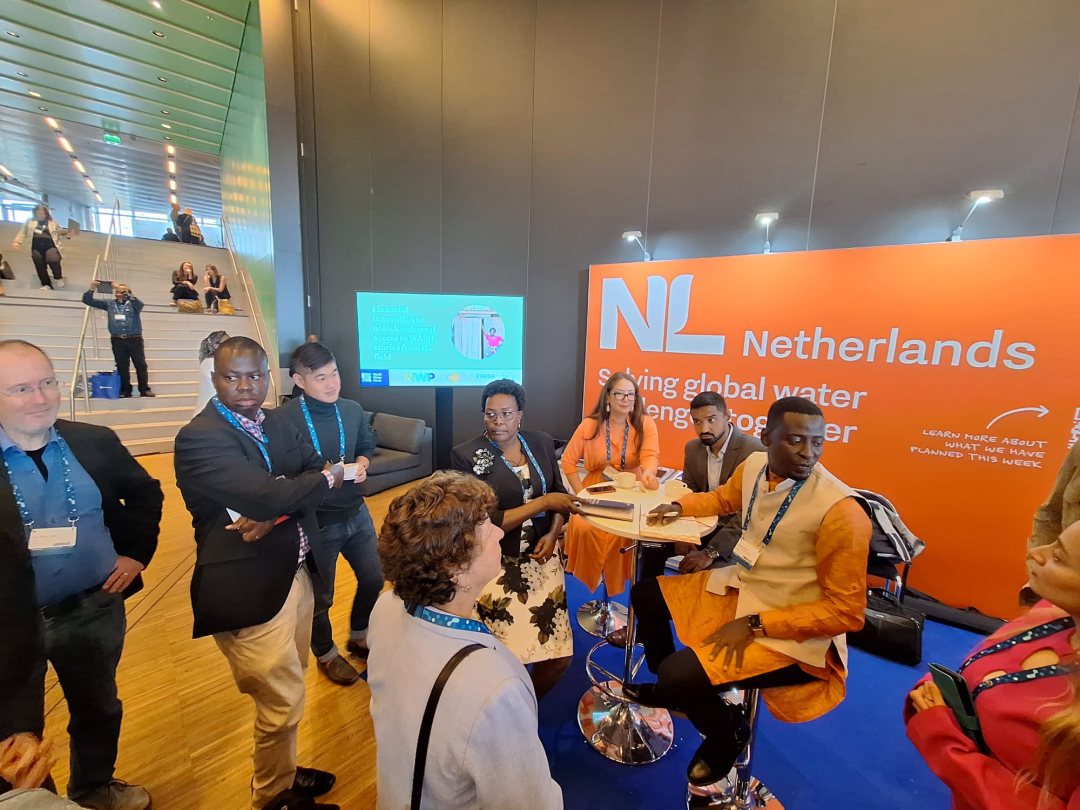

Helping WASH entrepreneurs
The Dutch NGO WASTE was present in Stockholm to draw attention to the FINISH Mondial consortium that works on establishing self-supporting WASH sectors in Bangladesh, India, Tanzania, Ethiopia, Kenya, and Uganda. According to Carolina Latorre of WASTE, the success of FINISH Mondial rests in the support it provides to the whole chain and in both stimulating demands by households as well as supporting the entrepreneurs who build home toilets and treat feces. She noted greater recognition of scaling up the sector at the global level. “Several enterprises have been able to grow but have now reached a ceiling. They have become too big to get microfinance but are still too small to attract private money to enable them to grow further.” Latorre says that scaling up is crucially important to achieve the SDG 6 target of universal access to improved sanitation by 2030. Her organisation was also present in Stockholm to show the first results of their Take-a-Stake Fund Initiative that tries to bridge this financing gap for start-ups in the WASH sector that have become scale-ups. “This year at Stockholm, we could show examples of what has worked and what has not. This is very important in convincing more private investors to step into the WASH sector at a larger scale.”
As a member of the Netherlands Water Partnership (NWP), WASTE had the opportunity to give a presentation at the Netherlands Pavilion and hold a closed session. Latorre praised the support it received. “It has been helpful. It is important to arrange the right environment to make sure that we can talk about what we do and to create the right environment for fruitful discussions,” she added.
Latorre of NWP-member WASTE: “The support, given by Netherlands Water Partnership has been helpful. It is important to arrange the right environment to make sure that we can talk about what we do and to create the right environment for fruitful discussions.''
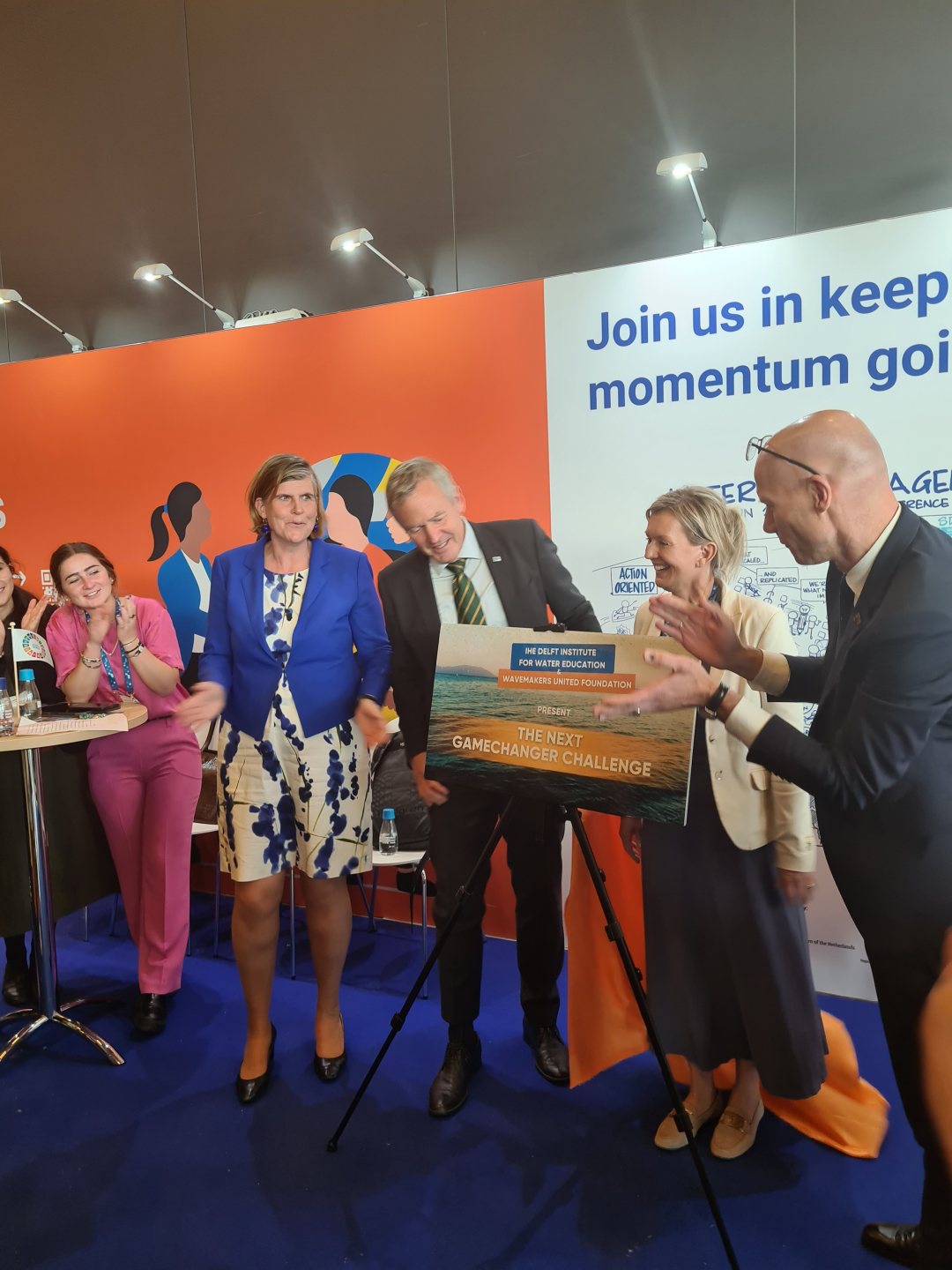

Raising youth awareness
Twelve youth organisations combined their efforts in the UN Water Action Agenda to raise more awareness among young people on the importance of water. The partners of the Wavemakers Initiative committed to reaching one million youngsters yearly mainly through giving guest lessons and encouraging students to come up with new solutions. Tilly Schoo, the initiator, was present in Stockholm to follow up on the launch of the initiative in New York in March. Wavemakers held its first guest lesson in The Netherlands and supported a postcard action by students at the Lebanese University of Balamand. “We are seeking additional international collaboration,” said Schoo at the Netherlands Pavilion, where she revealed a poster announcing the second part of a challenge among students globally to come up with innovative ideas for solving global water issues. “We want to be a game-changer and drive impact for lasting water conservation. For this, we want to engage young people and professional athletes such as swimmers and sailors.” A workshop was held at the Stockholm World Water Week led by former Dutch water envoy Henk Ovink and Rector Eddy Moors of IHE Delft Institute for Water Education. The workshop focused on an international strategy for the initiative.
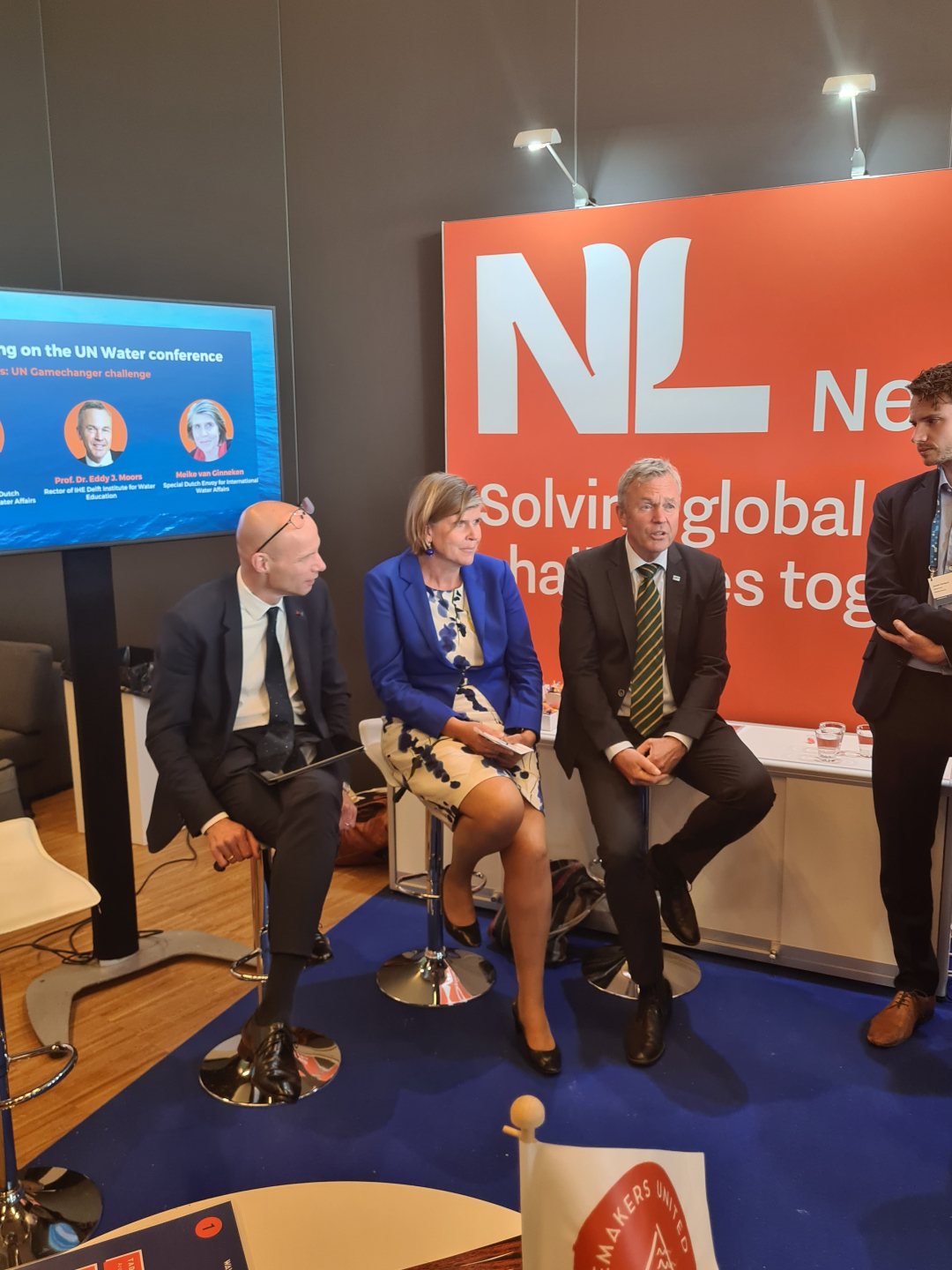

Network for Water Education
The Dutch-based IHE-Delft Institute of Water Education presented several of the activities on the UN Water Action Agenda that it is involved in. One was the strengthening of regional training centres. In Stockholm, IHE Delft showed its support for the launch of the Global Water Education Network This network, coordinated by UNESCO and the Alliance of IHE Delft, Cap-Net UNDP and SIWI, seeks to stimulate information exchange between many regional water training centres. “What we see,” says Eddy Moors, the Rector of IHE Delft, “is the lack of capacity within the water sector between the management and the operators. This layer is missing in many organisations. As an educational institute, we want to focus our efforts on capacity building of the specific skills of these workers. The network will enable us to focus on the middle management.” According to Moors, capacity building is a key issue to achieve the targets of SDG 6 on water, especially in the long term. “We see that the requirements for return of investments in regular projects and institutions are too short term. Building capacity is a long-term activity. It needs an environment that educates young professionals and the new network can play an important role in this.”
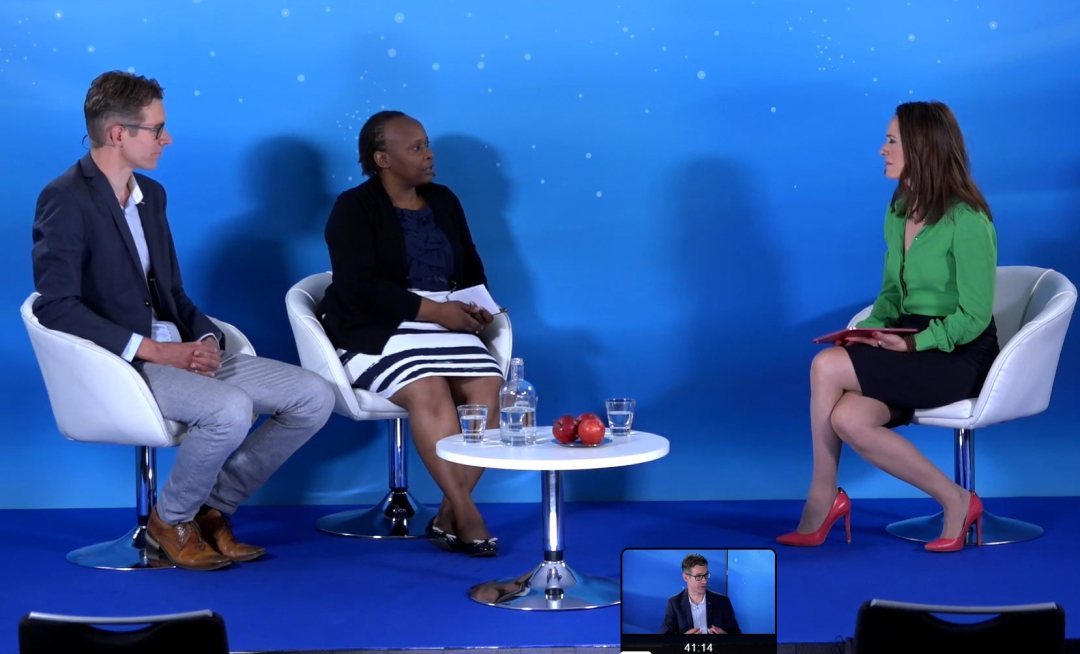

Kidneys of the earth
“We restore the kidneys of the earth,” explained Julia Mulonga of the Netherlands-based Wetlands International. She runs the East Africa office and is involved in projects to stop the degradation of wetlands every day. Her organisation supports the Fresh Water Challenge as discussed at the UN Water Conference. As an outcome of the global summit on Biodiversity in Canada in December last year, Wetlands International is part of an initiative that aims to restore at least 300,000 km of rivers and 350 million hectares of wetlands by 2030. “Wetlands collect water, store it and slowly release it. They are important for many people in Africa who depend on that water for their livelihoods.” Wetlands International is involved in two landscape projects in Eastern Africa. “New elements are that we are undertaking long-term planning and are working with many different stakeholders. We develop visions for large pieces of land. We stimulate local communities to be involved and regenerate the ecosystems on their land.” At the Stockholm World Water Week, Mulonga talked about what the use of local knowledge and additional knowledge from global organisations, like Wetlands, can contribute. “For instance, we are involved in developing the Global Mangrove Watch, an online platform to monitor the real-time recovery of coastal mangroves. It catalyses on-the-ground action and helps mangroves become central to climate mitigation.”
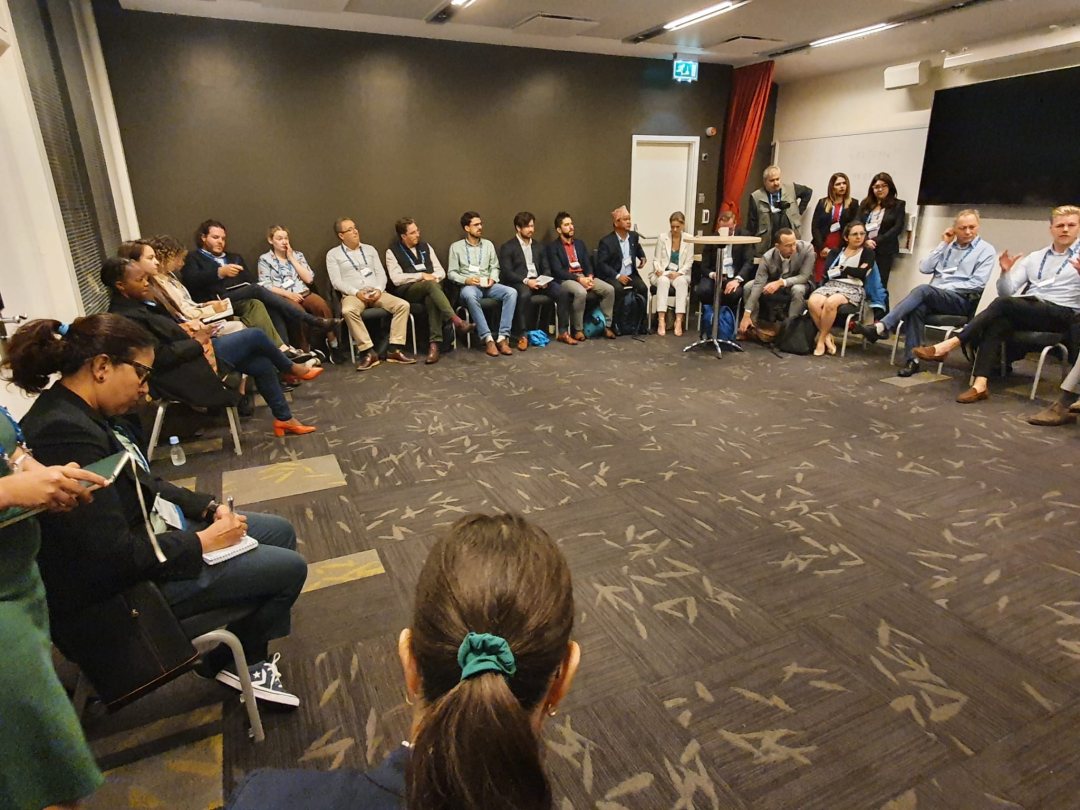

Building trust
“We had over 200 registrations for our session on innovative water governance, however, we could host only 50”, says Iris Bijlsma, program coordinator of the Valuing Water Initiative of the Dutch government. The unique session worked with a constellation methodology to create a wider understanding of the different values of water. “Based on a real case in Chile, the participants confronted each other with vested interests, such as policies, agriculture, and environment. By asking about their interest, we were able to create trust for an open discussion on a more inclusive water governance”, explains Bijlsma. It was the first time such a session was organized at World Water Week. “Given the big interest and very positive reactions by the participants, this tastes for more”, she adds.
The Valuing Water Initiative builds on five principles, developed by the United Nations and World Bank High-Level Panel on Water and launched in 2018. The principles seek to encourage decision-makers to include all values of water, such as cultural, societal, spiritual, and environmental. The Dutch government registered the 2.0 version of the programme on the UN-Water Action Agenda. The new programme includes a learning platform for bringing the principles into practice. The first public session in Stockholm had a focus on the first two principles that call to identify and reconcile values and build trust.
More on the Dutch initiatives on the UN-Water Action:
● IHE Delft – Strengthen Regional Training Centers and Networks of Training Centers
https://sdgs.un.org/partnerships/strengthen-regional-training-centers-and-networks-training-centers
● IHE Delft - UN Water SDG 6 Capacity Development Initiative
https://sdgs.un.org/partnerships/action-networks/water
● Waste – FINISH Mondial
https://sdgs.un.org/partnerships/water-sanitation-and-hygiene-wash
● Wavemakers – Educate one million youngsters on water annually until 2030 – together
https://sdgs.un.org/partnerships/educate-one-million-youngsters-water-annually-until-2030-together
● Wetlands International - The Freshwater Challenge
https://sdgs.un.org/partnerships/freshwater-challenge
● Dutch government - Valuing Water Initiative
https://valuingwaterinitiative.org/
Find all 832 registered initiatives on the website UN Water Action Agenda:




